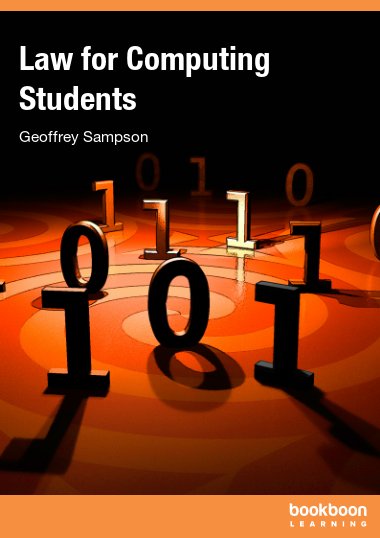Anyone hoping for an IT career needs to know something of how the IT industry is affected by the law. This textbook gives computing students the basic essentials. In a fast-moving field, it shows not only what the law now is but which directions it is evolving in. After a brief survey of how English law works, chapter topics include IT contracts, copyright and patents, data protection and freedom of information, web law, and others. Frequent reference to real-life law cases creates a level of human interest which helps readers assimilate the underlying principles.

